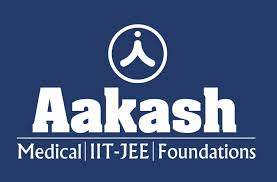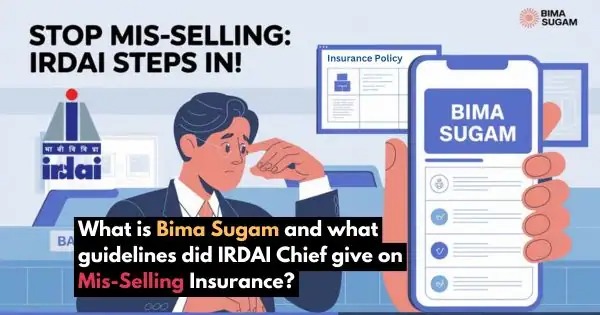1. The petitioner has been punished for using Unfairmeans in the examination. It is alleged that the petitioner while appearing in the examination of Shiksha Shastra, I paper on 26.7.90, his answer book came from outside the examination hall. He was given a show cause notice on 6.9.90. The petitioner is said to have replied the show cause notice on 20.11.9C. He denied the allegation. The petitioner had received an order dated 15.7.90 canceling his B.A. 2nd year examination. 1990 and also debarring him from appearing in subsequent examination of 1991, by the Deputy Registrar (Examination). The petitioner challenges the order on the ground that it is passed without application of mind, mechanically and it based on no evidence. The order is said to be arbitrary, unjust and unreasonable. The order of punishment is also said to be against the principles of natural justice. The petitioner was not given any opportunity of being heard. The petitioner was rot shown the impugned answer book. On the aforesaid grounds, the petitioner seeks to quash the impugned order dated 15.7.91.
2. In reply, filed by the other side, it is averred that the petitioner had brought the answer book from outside the examination hall. This fact is endorsed on the petitioner''s answer book by the Chief Invigilator of the examination centre. The petitioner was given opportunity to show cause. His explanation was considered and thereafter his examination was cancelled.
3. The impugned order of punishment is issued on the basis of show cause notice issued to the petitioner and on the basis of his reply to the said show cause notice. No further enquiry was held after the petitioner''s reply to the show cause notice was received. The petitioner has denied the allegations levelled against him in the show cause notice. If the allegation against the petitioner was proved his answer book could not be sent for evaluation to the examiner. The answer book which was seized from the petitioner is said to have been brought in the examination hall from outside. Therefore, after its seizure, it was to be treated as the disputed answer book. Marks could not be awarded to the said disputed answer book. It was appropriate that an enquiry in presence of the petitioner should have been held as to whether the answer book was brought from outside the examination hall and if on enquiry it was proved that the answer book was procured by the petitioner from outside the examination hall then he was liable to be punished. After denying the charge the statement of the Chief Invigilator of the examination hall who had purportedly seized the answer book after it was brought to the examination hall, should have been recorded and the petitioner was entitled to cross examine the Chief Invigilator. If the said invigilator was not available and could not depose during the enquiry then it was imperative for the unfairmeans committee to record such evidence as was available with them to prove the charge against the petitioner.
4. The allegation levelled against the petitioner is very serious and it tends to violate the sanctity of the examination. If the allegation was proved to be correct the petitioner cannot be exonerated because that would amount to paying a premium to the petitioner for using unfairmeans in the examination. At the same time it is to be noted that if the allegation against the petitioner is not proved then he cannot be punished for using unfairmeans in the examination hall. In order to prove the guilt of the petitioner it was necessary that after receipt of his reply to the show cause notice an enquiry was held to ascertain the truth or otherwise of the allegation levelled against him. The allegation levelled against the petitioner cannot be wiped out unless it is enquired into. The proceeding upto the stage of show cause notice and inviting reply thereto are valid. Therefore, these proceedings upto the stage of filing of reply to the show cause notice by the petitioner could not be wiped out, The proceedings upto that stage are perfectly legal and valid and this judgment does not intend to disturb the proceedings upto the stage of filing of reply by the petitioner to the show cause notice but the later part of the proceeding by which the impugned punishment was imposed on the petitioner cannot be sustained. To find out the truth it is necessary that the respondents are allowed to pick up the thread from the stage of filing of reply by the petitioner to the show cause notice and hold an enquiry in accordance with principles of natural justice against the petitioner. The petitioner is required to be associated with the said enquiry and the respondents are bound to afford an opportunity of being heard to the petitioner during such enquiry. It is not permissible for the respondents to punish the petitioner at his back without a proper enquiry having been conducted. The enquiry against the petitioner should conform to the principles of natural justice.
5. The decision after conclusion of the enquiry is likely to affect the petitioner and his civil rights are likely to be impinged, therefore, he must be given reasonable opportunity of being heard. The unfairmeans committee which clothed is with the power to conduct enquiry in the matter of use of unfair means by the students during examination has a trappings of a quasi judicial tribunal, which is to decide unfair means cases on evidence. Such evidence is to be record d in presence of the students who are charged with having used unfairmeans in the examination or misconducted themselves during the examination. A student who is facing charge of use of unfair means during the examination or who is facing the charge of misconduct during the examination is entitled to be associated with the enquiry when evidence against him is recorded unless such student chooses to remain absent during the enquiry. He may put questions also to the witnesses which cannot be disallowed. if in the opinion of the unfairmeans committee such questions are relevant to arrive at a just decision of the case.
6. Rules or regulations of the respondents may not provide for affording an opportunity to a student charged with using, unfairmeans during the examination but principles of natural justice require that any action which is likely to have civil consequences must be taken after hearing the person who is facing the charge or who is likely to be affected adversely by any proceeding. It is implicit in every enquiry whether governed by the statute or otherwise, that a person who is facing enquiry in respect of any chargeis given reasonable opportunity of being heard. This requirement flows from Article 14 of the Constitution which guarantees equality before law for all and equal protection of law for all. Observance of principles of natural justice is one of the attributes of Article 14 of the Constitution of India, Therefore before imposing the impugned punishment on the petitioner it was necessary to give him reasonable opportunity of being heard and to record the statement of the Chief Invigilator who allegedly seized the answer book which was brought from outside the examination hall, in presence of the petitioner.
7. For the reasons given in this judgment I am of the opinion that penalty imposed: on the petitioner by the impugned order should be set aside with a direction that from the stage of filing of reply to the show cause notice by the petitioner, a fresh enquiry be conducted against the petitioner. The penalty imposed on the petitioner alone is set aside and not the charge framed against him. Therefore, the charge is to be enquired into in accordance with principles of natural justice and in the light of the observations made herein above.
8. The writ petition is allowed to the extent that order of imposition of penalty on the petitioner dated 15.7.91 is set aside with a direction that the respondents if so advised may hold an enquiry into the charge levelled against the petitioner in presence of the petitioner and afford him a reasonable opportunity of being heard. This shall be done within one month from the date of presentation of a certified copy of this order before the respondents by the petitioner. The petitioner shall be given a certified copy of this order within five days on payment of usual charges. In case the respondents do not choose to hold the enquiry afresh from the stage of filing of the explanation by the petitioner to the show cause notice within the period specified herein above then they shall declare the results of the petitioner and if he is successful in the examination he shall be permitted to pursue his studies and take examinations also for which he is eligible.
9. To the extent indicated above, the writ petition is allowed. There will be no order as to costs.
(Petition allowed)

